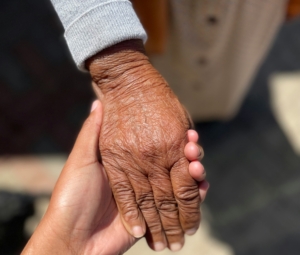Shifting Focus on Mental Health in Saint Kitts and Nevis
 Mental Health in Saint Kitts and Nevis, formally known as the Federation of Saint Christopher and Nevis, has become a growing concern in recent years. A lack of prior funding and persistent cultural stigma around mental illness have left behind limited infrastructure for the country’s mental health care. Recently, however, the federation announced a shift in strategy, dedicating greater focus and more resources to mental health in Saint Kitts and Nevis. This new approach can potentially redefine how the developing world addresses mental health concerns.
Mental Health in Saint Kitts and Nevis, formally known as the Federation of Saint Christopher and Nevis, has become a growing concern in recent years. A lack of prior funding and persistent cultural stigma around mental illness have left behind limited infrastructure for the country’s mental health care. Recently, however, the federation announced a shift in strategy, dedicating greater focus and more resources to mental health in Saint Kitts and Nevis. This new approach can potentially redefine how the developing world addresses mental health concerns.
Global Trends in Mental Illness
Mental illness is a growing concern globally, particularly in the developing world, including Saint Kitts and Nevis. According to the World Health Organization (WHO), in 2019, approximately 970 million people had some form of mental disorder. While still a global minority, this accounts for more than 10% of the population who had to deal with additional barriers in their day-to-day lives.
It is also important to note that mental illness does not affect all equally. Other negative situations in life, such as poverty or violence, can cause or worsen mental illness. This makes developing nations particularly vulnerable as they have larger impoverished populations. On top of that, many nations have limited support systems and cultural stigmas on the topic, which prevent many of their citizens from getting the care they need.
Challenges to Mental Health in Saint Kitts and Nevis
The Islands of Saint Kitts and Nevis have historically struggled with limited funding for mental health services. In 2007, the Federation raised its spending on mental health services to just 1%. While this was still an increase from even lower rates, which had not been adjusted since 1956, the country still lacked major infrastructure to offer help. Limited resources, including needed medicine and trained staff, mean that only the most severe cases in patients receive treatments. Approximately 1% of the population of Saint Kitts and Nevis has been diagnosed with some form of mental illness.
Poverty has also been a significant barrier to accessing mental health care in Saint Kitts and Nevis. In 2008, about 21.8% of the population was below the poverty line. However, due to increased government response, this percentage began to decline slowly but surely. The government sped this up by simultaneously funding public health, so potential patients did not have to pay out of pocket.
Not only can poverty lead to or worsen mental illness, it can also impact a patient’s ability to get care. Research shows that those living in impoverished conditions are less likely to seek help and less likely to receive it if they do.
Mental Health Initiatives in Saint Kitts and Nevis
On November 27, 2024, the Ministry of Health in St. Kitts and Nevis launched its Mental Health Service Systems Enhancement Project. The project, supported by the government and funded in part by Taiwan, aims to expand access to mental health services by increasing funding and strengthening mental health infrastructure. The nation’s Prime Minister and head of the health Ministry, Terrance Drew, also emphasized the importance of this initiative and the nation’s renewed focus on improving the mental health of Saint Kitts and Nevis.
The most prominent counseling center, known as the Dr. Arthur W. L. Lake Mental Health Day Treatment Centre, offers high-quality mental health services and follows a patient-centered approach. For instance, it aims to fight the stigma around mental illness in Saint Kitts and Nevis by providing home-like and comfortable conditions, and some patients even shared their stories and how the center helped them.
The Future of Mental Health Care in the Developing World
While Saint Kitts and Nevis still have a long way to go, its new focus on mental health care is a refreshing step in the right direction. Despite limited infrastructure and combating a cultural stigma, the islands have been making positive steps towards better care. In particular, increases in government funding and foreign aid have given the country more resources in its fight. If the country sees positive results with this project could serve as a blueprint for effective strategies to address and improve mental health in other developing nations.
– Jesse Correll
Jesse is based in Boston, MA, USA and focuses on Global Health for The Borgen Project.
Photo: Unsplash
